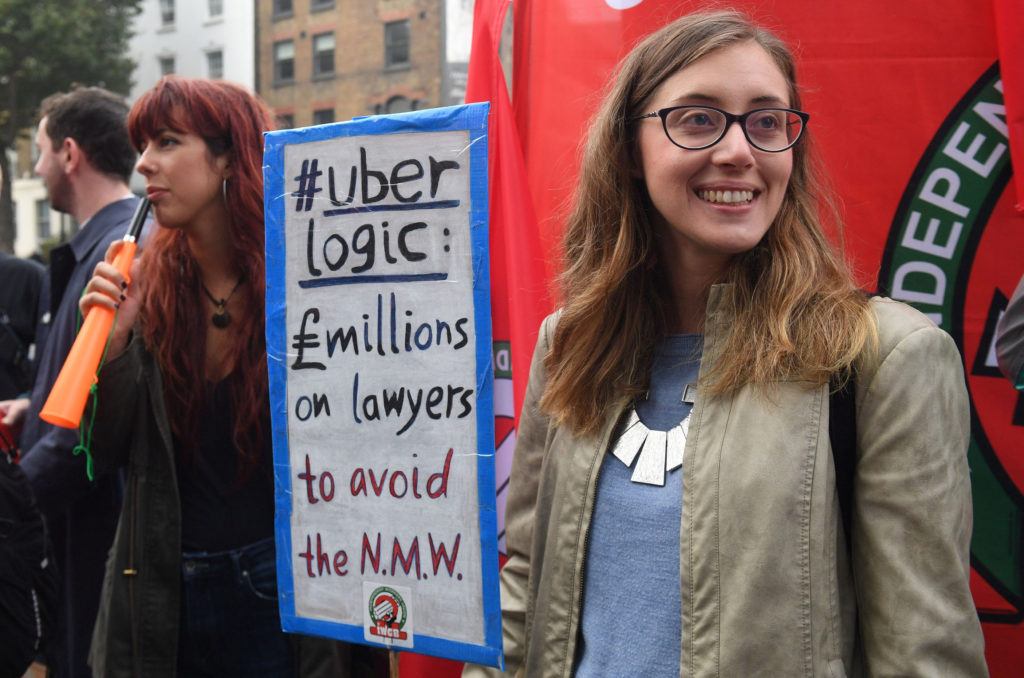Amazon Warehouse in Swansea. Credit: Matt Cardy/Getty Images
An abundance of cheap consumer goods is a feature of contemporary life in the West. That said, it is worth remembering that cheapness is often a by-product, not only of efficiency and economies of scale, but of the squeezing of profit from a cowed and precarious workforce.
This was strikingly apparent in some of the places I visited in 2016 during the research for my book, Hired. For those who are not part of the hidden world of Britain’s warehouses and call centres, it is easy to ignore those that are, because the latter are typically too exhausted to leave any meaningful record behind.
You can punch your credit details into Amazon’s website without ever having to think about what goes on in one of its vast ‘fulfilment centres’. Just as the people who broke their backs in the pink splodges on the map did not exist in the minds of those who sipped sherry in England’s drawing rooms a century ago, so the people cocooned inside Amazon’s warehouses may as well not exist to those browsing the company’s website. Plus ça change, plus c’est la même chose.
The cheapness of a service can also arguably alter the mentality of the person using it. While this may be anecdotal, I was told on several occasions by Uber drivers during my research that the low cost of the rides altered how customers typically responded to the person picking them up in a cab. “It’s to do with the rates,” a forty-two-year-old Eritrean Uber driver named Aman told me emphatically:
“For any service you pay, if you pay a high price you tend to have respect for that person…even though it’s the same job, or it’s the same service you are receiving, you’re gonna respect whoever is helping you more, unfortunately.”
Though not quite the same thing, while driving for Uber myself I noticed a peculiar disconnect on the part of the customer between the fare they were paying and the money I took home at the end of a shift. People in the back of my cab would regularly bemoan ‘surge’ pricing, seemingly oblivious to the fact that this mechanism – whereby a multiplier is applied to standard rates during periods of high demand – was essential from a driver’s point of view in ensuring that you earned something close to a living wage.

There is a dilemma here though: how does one oppose environmental degradation and waste, sweatshop labour and a ‘race to the bottom’, without depriving working people of the consumer goods that make life worth living? Every worker is, as it were, also a consumer, and the Amazon warehouse which is characterised by a precarious and poorly paid workforce is also churning out the consumer goods that are affordable enough for working class people to buy and enjoy.

 Main Edition
Main Edition US
US FR
FR






Join the discussion
Join like minded readers that support our journalism by becoming a paid subscriber
To join the discussion in the comments, become a paid subscriber.
Join like minded readers that support our journalism, read unlimited articles and enjoy other subscriber-only benefits.
Subscribe